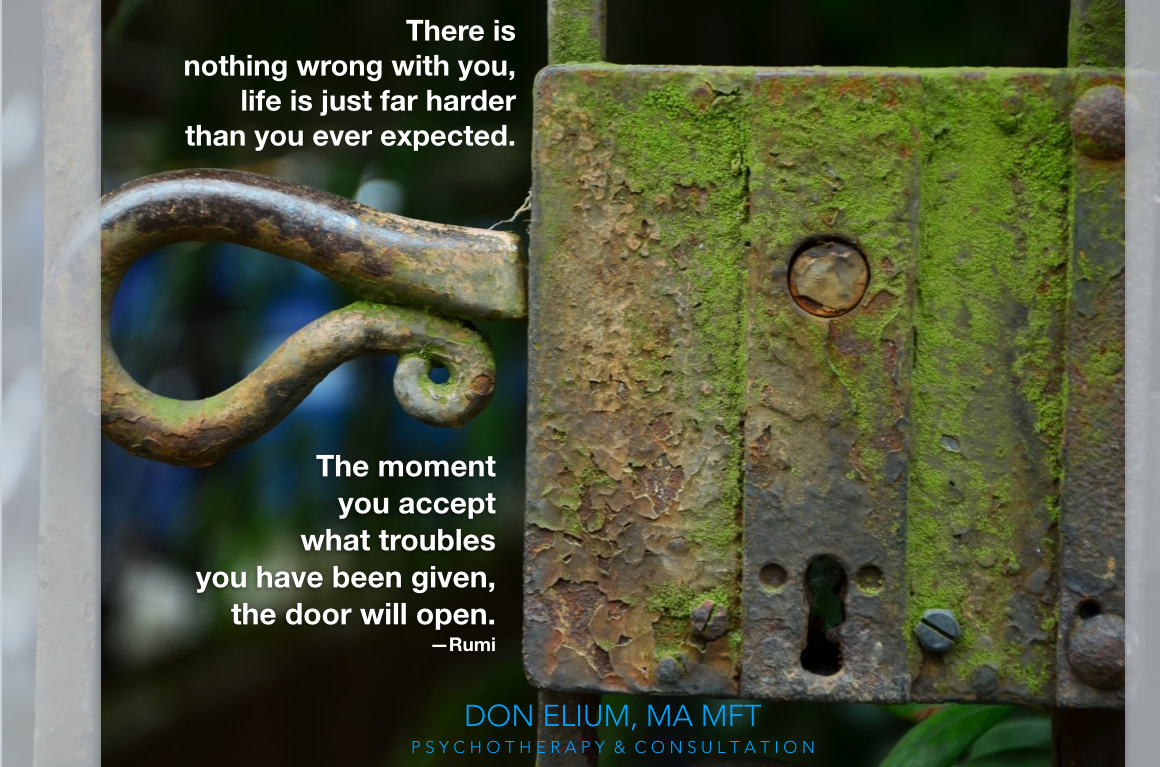The Emotional Waves, Heaviness, and Numbness from Divorce, Death, Being Fired, Ending a Friendship, Health Crisis and Disappointment unexpectedly disorient the brain and nervous system as you adjust to this profound and difficult change.
The most off-limits topic for conversation is not death or feelings but grief. Grief involves the mind, body, and spirit learning to adjust to complex changes. It is an emotional and neurological profound emotional event. When actively grieving, you will feel heavy. As the grieving process progresses, small signposts of progress can appear. A major one is feeling physically lighter. Feeling lighter may not happen all at once, but it is a sign that your brain and nervous system are beginning to learn, on many levels so brain, mind, and heart, how a change has happened and that it has happened and things are different. The process allows the loosening of the grip of the past and a lighter and more hopeful present. It is most helpful to debunk the myths about grief. Misinformation makes for unnecessary suffering.
Common myths keep many of us stuck in the muck.
"No, things won't just naturally get better. They can be triggered by movie scenes, other people's losses, and unexpected circumstances.
No, you don't have to wait for some time before you start to face it. Note that grieving can begin before the change even happens."
No, you can't eliminate the pain, replacing the loss with something else. A new partner or puppy will be seen not for who and what they are but in the shadow of your unaddressed loss.
There are no predictable stages; everyone is unique and must face their own situation. Each person has steps to take to befriend their inner world, which wants to move forward but is sometimes stuck in the past.
When we’re grieving, the feelings we have, the thoughts that we have, even some of the things that we do—we feel like we’re losing our mind. But if you understand why your brain might be reacting this way, I think it gives us a little patience with ourselves. Grieving is a form of learning. And learning takes time and experience, and our brain is doing its best to help us. But it’s going to take some time. — Mary Francis O’Connor, PhD
Many people are unaware that there are specific steps that need to be taken to ease the pain of a broken heart due to loss and start feeling again. This counseling aims to address the significant losses in your life that are causing you to have obsessive thoughts, regrets, and resentment, and it helps you resolve the unresolved thoughts and feelings that are constantly on your mind and in your heart, allowing you to move forward in your current life.
Because of some of the research I’ve done, we discovered that when we have a bonded relationship, it is encoded in the brain's reward network. The reward network is motivating us to seek loved ones out and to enjoy them as we did when we were with them. That is how researchers now think about grief—as having had something taken away from us, from our sense of self, rather than having something added onto our plate. And this is a pretty big difference in thinking about how grieving works. —Mary Francis O’Connell. PhD
When people say, “I feel like part of myself is missing,” this may not be only a metaphor. It may in fact be part of how the brain has encoded that relationship, so the absence of that person is like an amputation rather than simply an additional stressor.
Don Elium, MA MFT
The duration of the therapy will vary depending on your specific goals. The aim of this therapy is to make significant progress in each session.
When people say, “I feel like part of myself is missing,” this may not be only a metaphor. It may in fact be part of how the brain has encoded that relationship, so the absence of that person is like an amputation rather than simply an additional stressor.
This grief counseling program follows the action steps outlined in The Grief Recovery Handbook by John James & Russell Friedman. Don Elium, MA LMFT, is a Certified Grief Recovery Specialist® from the Grief Recovery Institute®.
For sessions or a free 15-minute phone consult, contact Don at 925 256 8282 by phone/text.
The Grief Recovery Method, developed by John W. James and Russell Friedman, is designed to assist individuals in processing and healing from their grief. It focuses on providing practical tools and strategies for dealing with the emotional pain of loss. The program is based on the idea that unresolved grief can significantly impact a person's well-being. Taking specific steps can help individuals move forward in a healthy way.
In the Grief Recovery Method, participants go through a series of steps to address their grief. These steps include acknowledging the loss, identifying and expressing the associated emotions, and completing any unfinished business related to the relationship. The method emphasizes the importance of honest and open communication about one's feelings and encourages individuals to let go of any expectations about how they "should" feel or behave.
One key aspect of the Grief Recovery Method is the focus on taking action to heal. Instead of simply talking about their grief, participants are encouraged to complete exercises and activities that help them process their emotions and find closure. This can include writing letters to the person they lost, sharing their story with others, and creating rituals to honor their loved one's memory. By actively engaging in these practices, individuals can find a path to recovery and rebuild their lives after loss.In the Grief Recovery Method, participants go through a series of steps to address their grief. These steps include acknowledging the loss, identifying and expressing the associated emotions, and completing any unfinished business related to the relationship. The method emphasizes the importance of honest and open communication about one's feelings and encourages individuals to let go of any expectations about how they "should" feel or behave.
One key aspect of the Grief Recovery Method is the focus on taking action to heal. Instead of simply talking about their grief, participants are encouraged to complete exercises and activities that help them process their emotions and find closure. This can include writing letters to the person they lost, sharing their story with others, and creating rituals to honor their loved one's memory. By actively engaging in these practices, individuals can find a path to recovery and rebuild their lives after loss.









